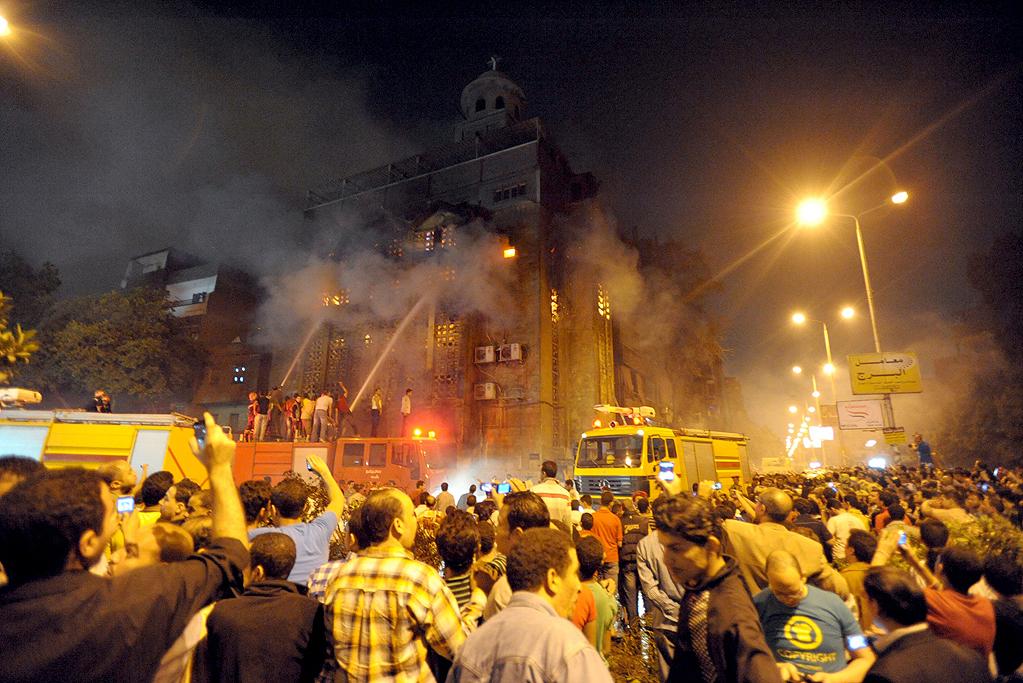Post-revolution Egypt and Tunisia gripped by unrest
Egyptians gather as firefighters extinguish a fire on a church after clashes between Muslims and Christians in Cairo on May 7, 2011. Clashes between Muslims and Christians in the Egyptian capital left at least twelve people dead and over 150 others injured, according to reports.
Revolutionaries in the Arab world may be finding out that getting rid of the dictator is only the beginning.
Violence erupted this weekend in both Tunisia and Egypt – the two countries where the so-called 'Arab spring' of democracy first took shape.
Nearly four months after Tunisia's autocratic president, Zine al-Abidine Ben Ali, was toppled in the wake of a widespread public uprising, residents in the tiny North African state are once again living under a nightly curfew.
The security restrictions were reimposed this weekend following days of unrest in the capital city, Tunis.
Tunisian police dispersed anti-government protests there on Sunday – the fourth day of demonstrations – with volleys of teargas on the bustling Habib Bourguiba street in downtown Tunis. Protests began last week after a former government minister warned of a potential coup d'etat by Ben Ali supporters through Facebook.
Meanwhile, in neighboring Egypt, hundreds of Coptic Christian protesters took to the streets outside the state television building in Cairo after at least one church was torched in a working class district just west of the capital.
Clashes between Copts and Muslims this weekend in Imbaba left at least 12 people dead and more than 150 injured.
While sectarian violence in Egypt is generally rare, many of the minority Copts – an estimated 10% of the country’s nearly 80 million residents – complained on Sunday that the Egyptian military and police were not doing enough to protect their churches.
Just like in Tunisia, Egypt’s interim government has struggled to regain stability in the nearly 100 days since strongman president Hosni Mubarak was ousted on February 11.
Both countries are slated to hold elections later this year.
Every day, reporters and producers at The World are hard at work bringing you human-centered news from across the globe. But we can’t do it without you. We need your support to ensure we can continue this work for another year.
Make a gift today, and you’ll help us unlock a matching gift of $67,000!
